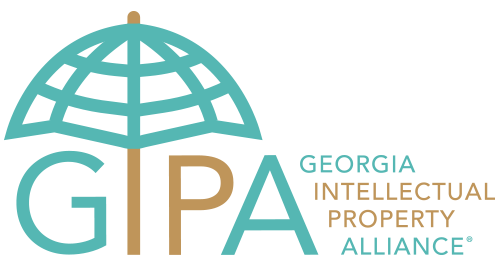
About this Portal
The IP Career Portal is the GIPA IP Careers team’s flagship resource to students, IP job candidates, and employers.
Behind the scenes, the team at GIPA IP Careers builds and maintains relationships with the nation’s best employers, both law firms and organizations, to curate job listings from the source.
We do not skim other IP job listings. All of our job listings are given to us directly from the source. Aspiring to be the premier IP job listing site, we strive to provide employers with the best candidates for attorney, patent agent, technical advisor, and corporate positions.
We are here to assist, advise and accelerate.

IP Careers Basics
What is IP?
Intellectual property rights protect ideas, inventions, discoveries, symbols, images, expressive works, and other valuable products of the human mind that have an intangible existence.
Intellectual property is generally divided into several main categories: patents, trademarks, copyrights and trade secrets.
Patents
An invention is patentable if it satisfies three criteria: it is useful, novel, and non-obvious. Additionally, an invention must fall within patentable subject matter. The Supreme Court of the United States ruled that “anything under the sun made by man” is patentable. The scope of what is considered patentable subject matter has expanded greatly over the past half-century to include biotechnology, software, and business method patents. As the scope of patentable subject matter has expanded, the USPTO has had to respond in kind with new rules for patent examination. A patent’s exclusive rights are limited to 20 years from the date of filing of the patent application.
Trademarks
Trademarks are marks (including logos), words, or phrases that are used to identify the source of goods and services. A trademark is protectable if it is used in commerce and capable of distinguishing a provider of goods and services. The first person or entity to use a mark in commerce is entitled to the protection, regardless of whether they are the first to register the mark. Trademark protection lasts as long as the mark is being used in relation to goods or services.
Copyrights
An author is granted certain exclusive rights to a protected work. Currently, in most instances, an author’s exclusive rights extend for 70 years beyond the author’s life. A work may be protected if it is an original work of authorship fixed in a tangible medium. A work must also fall within a statutorily created category of protected subject matter. The scope of protected subject matter has been expanded greatly since the introduction of copyrights to the United States with the development of modern technology. Copyrightable subject matter includes: literary works; musical works; dramatic works; pantomimes and choreographic works; pictorial, graphic, and sculptural works; motion pictures and other audiovisual works; sound recordings; and architectural works. An original work requires some “modicum of creativity.” An author’s exclusive rights include the right to copy, sell, perform, and create derivative works of the copyrighted work.
Trade Secrets
A trade secret is an idea or information that retains its value because it is not widely known. Trade secret law protects the secret information from misappropriation by others. Trade secrets have traditionally been protected by state law, however, in 2016, the Defend Trade Secrets Act was passed creating the newest form of federally protected intellectual property. For information to gain protection as a trade secret, there are generally two requirements: there must have been reasonable efforts to maintain the secrecy of the information, and the information must derive commercial value from not being generally known or readily ascertainable. This information may take the form of business methods, processes, formulas, and techniques. Trade secrets have potentially perpetual protection; the information retains the status of a trade secret for as long as it remains a secret.
“An invention is patentable if it satisfies three criteria: it is useful, novel, and non-obvious”
“Trademarks are marks (including logos), words, or phrases that are used to identify the source of goods and services. ”
“An author is granted certain exclusive rights to a protected work. ”
“A trade secret is an idea or information that retains its value because it is not widely known. ”
Growth of IP
Today, as much as 80 percent of the value of publicly traded companies in the U.S. comes from intangible assets. This contrasts with the 1980’s, when intangible assets accounted for a mere 40 percent of a publicly traded company’s value. Management of intellectual property, as one of the largest intangible assets of a business, understandably has become a significant strategic issue. For example, since passage of the last major copyright reforms that went into effect in 1976 and 2004, the annual number of copyright registrations has increased approximately sixfold. Similarly, since the mid 2000’s, the annual number of patents issued by the U.S. Patent and Trademark Office (USPTO) has more than doubled. During this same period, the annual number of patent applications to the USPTO has also more than doubled, nearing the one million mark per year. Trademark applications and registrations have similarly shown a dramatic increase over the past several decades with 106,383 trademark applications filed in 2000 and 273,808 filed in 2018.
What are IP Careers?
There are a wide variety of jobs available in the area of intellectual property. These jobs are found in different market sectors (corporate, law firm, government, non-profit, etc.). The majority of jobs are as attorneys and entail many different types of work (litigation, transactional, licensing, etc.). The USPTO also employs hundreds of attorneys that examine trademarks and patents. As a result of treating intellectual property as an asset, many corporate jobs have emerged. Lastly, intellectual property practice groups at law firms employ patent agents and technical advisors.
Attorneys
The nature of legal jobs in intellectual property can vary depending on the market sector of the employment. Regardless of the market, intellectual property attorneys are expected to handle a wide variety of matters. Transactional attorneys generally handle matters relating to obtaining and securing intellectual property rights and exploiting the intellectual property rights of their clients. Litigation attorneys generally handle matters relating to the protection of intellectual property rights or defense against the enforcement of intellectual property rights. Private law firms employ the largest number of intellectual property attorneys. Law firms come in all different sizes and types, including large/medium/small and general/specialized. Within an individual firm, there may be still further divisions of intellectual property attorneys, such as litigation/transactional, patent/copyright/trademark, etc. Corporate attorneys are generally responsible for the legal affairs of the corporation for which they work. This may involve personally handling numerous types of legal matters or overseeing the hiring of outside counsel to handle the corporation’s legal issues.
Government Attorney
The government also employs intellectual property attorneys to handle a variety of matters among the many different levels of government. Examples include being a patent examiner or trademark examiner at the U.S. Patent and Trademark Office, copyright attorney at the U.S. Copyright Office or the Library of Congress, or an intellectual property attorney in the general counsel offices for a government agency (e.g., Department of Energy, Environmental Protection Agency, Department of Defense, and Customs and Border Protection).
Patent Agent/Technical Advisor
Patent agents are specialized professionals licensed by the United States Patent and Trademark Office (USPTO). Their main job obligation is to assist inventors on patent applications with their expertise in specific technical backgrounds. Patent agents commonly assist patent attorneys in developing and offering clients patentability opinions on whether an invention is likely or unlikely to be granted a patent. Unlike any area of law, patent agents are allowed to represent clients before the USPTO on a limited range of matters without actually being a licensed attorney. To become a patent agent, you must pass the Examination for Registration to Practice in Patent Cases, otherwise known as the patent bar exam. Most patent agents have a degree in engineering, physics, biology, chemistry, or computer science. Having a graduate degree in today’s market is greatly beneficial, however, it is not required.
Corporate Jobs
Like legal jobs, business jobs in intellectual property can vary depending on the nature of the business organization and the business opportunity. Most intellectual property business people typically build patents and trademark assets because the other types of intellectual property, such as copyrights and proprietary information, are protected rather easily under the law. Business people who develop intellectual property assets identify innovative opportunities, develop strategies for protecting these innovations, track and predict industry trends, and concern themselves with the financial returns based on investments in protecting these assets.
Business people who work in intellectual property outmarketing typically license and sell intellectual property developed within a company. The three primary areas of intellectual property outmarketing include patent, trademark, and copyright (software/technology). Those in this field identify intellectual property assets in the company that may have potential value to another company, package them in a format that is presentable to another company, identify potential customers (licensees/buyers), contact and pitch customers on the intellectual property, and negotiate license and sale deals.
The Patent Bar Exam
The U.S. Patent and Trademark Office (USPTO) requires those who prosecute patent applications to take an examination known as the patent bar examination. Generally, bachelor’s degrees in recognized technical subjects are sufficient to qualify for the patent bar. Those without degrees in technical subjects may qualify to sit for the patent bar examination if they satisfy sufficient other criteria to show possession of scientific and technical training. The patent bar examination typically consists of approximately 100 multiple choice questions over the laws and regulations governing the prosecution and award of patents.
Patent laws are governed by Title 35 of the United States Code, and patent regulations implementing those laws are detailed in Title 15 of the Code of Federal Regulations. The USPTO regulations are summarized in the Manual of Patent Examining Procedure (MPEP). Many companies offer courses to prepare an individual to take the patent bar examination. Many students choose to take the patent bar examination before graduating from law school. This may prove to be particularly beneficial to students who take the patent bar examination early in law school because there often are opportunities for part-time employment as a patent agent or scientific/technical advisor.
IP Career Resources - Internships

IP Internships
U.S. Copyright Office: The Office of the Copyright General Counsel provides internship opportunities for second year, third year, and graduate law students. Students assist the Office in its various administrative, regulatory, and other legal work by assisting in the drafting of legislation and legislative reports, conducting rulemakings and issuing regulations under copyright law, and administering statutory licenses and review of legal determinations of the Copyright Royalty Board.
U.S. Patent and Trademark Office: The Board of Patent Appeals and Interferences often offers summer or semester internships to students. Students work under the supervision of an Administrative Patent Judge, participating in the evaluation of patent appeals and/or interferences and drafting opinions relating to patent appeals and/or interferences. Many opportunities for summer or semester internships also are available with the federal judiciary who are responsible for handling most intellectual property disputes. Students in the district courts observe legal proceedings and assist writing legal memoranda, jury instructions, and draft opinions. Students in the appellate courts primarily assist with legal research and the drafting of legal memoranda and opinions. Students may apply for judicial internships through their schools or by writing directly to the judge at least six months in advance of the time requested for an internship. Information regarding judicial internships and clerkships is available at lawclerks.ao.uscourts.gov.
Library of Congress: The Library of Congress Office of General Counsel provides both summer and semester internship opportunities to first year and second year law students. Students undertake legal research and writing in virtually all areas of law, including intellectual property.
Federal Circuit: The Federal Circuit Court provides internships for highly qualified law students. Students will work with judges on IP matters at the forefront of the practice area.

IP Career Resources - Professional Organizations

IP Professional Organizations
Questions or Suggestions?
Contact an IP Careers Co-Chair




















